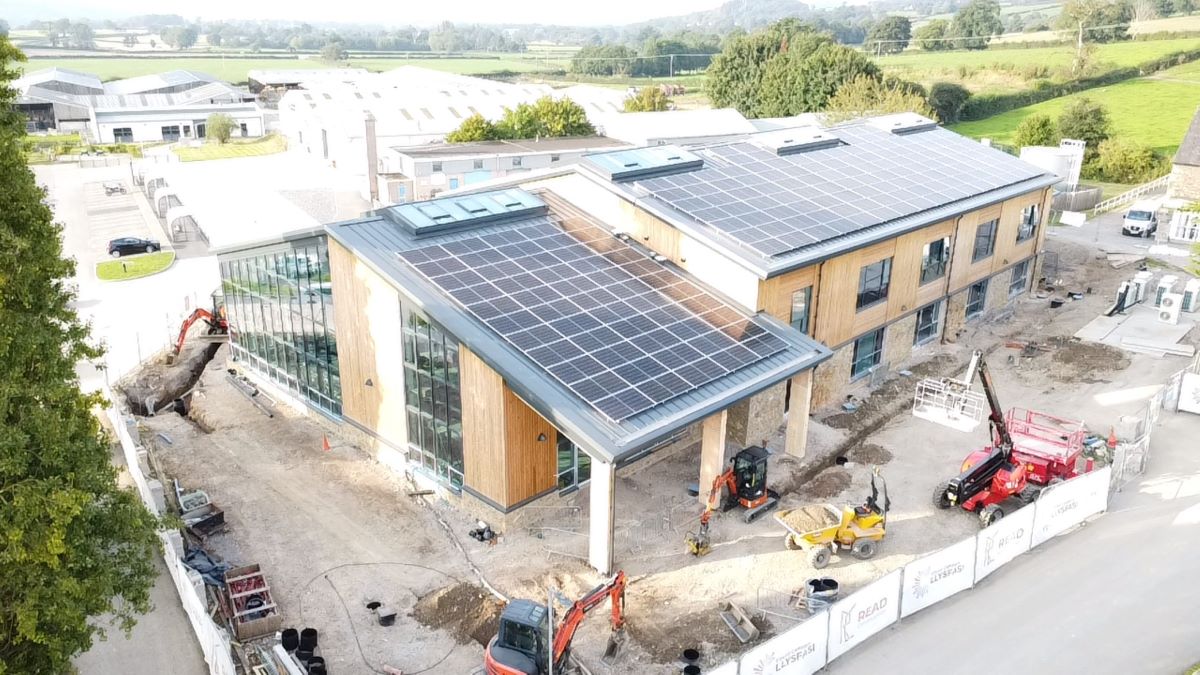Green Jobs Taskforce: UK government launches taskforce to support drive for 2 million green jobs by 2030

The UK Government today set a clear ambition to create two million green jobs by 2030, launching a new Green Jobs Taskforce to set the direction for the job market as we transition to a high-skill, low carbon economy.
The Green Jobs Taskforce, to be chaired by Energy Minister Kwasi Kwarteng and Skills Minister Gillian Keegan, forms part of the Government’s ambitious plan to build back greener and achieve net zero emissions by 2050.
Its aim will be to focus on the immediate and longer-term challenges of delivering skilled workers for the UK’s transition to net zero including:
- Ensuring we have the immediate skills needed for building back greener, such as in offshore wind and home retrofitting
- Developing a long-term plan that charts out the skills needed to help deliver a net zero economy
- Ensuring good quality green jobs and a diverse workforce
- Supporting workers in high carbon transitioning sectors, like oil and gas, to retrain in new green technologies
Business and Energy Minister Kwasi Kwarteng said:
“This Government has promised to do all it can to provide good quality, secure work as we build back better and greener from coronavirus.
“The Green Jobs Taskforce will oversee the UK taking strides towards long-term economic prosperity, as well as transitioning to the new low-carbon green industries of the future”
 Apprenticeships and Skills Minister Gillian Keegan said:
Apprenticeships and Skills Minister Gillian Keegan said:
“It is now more critical than ever to make sure people get the skills they need to progress and that will help our economy to recover.
“I am very much looking forward to co-chairing this important taskforce so we can create more, high quality green job opportunities, levelling up our economy and delivering on our commitment to be net zero by 2050.”
 Commenting on the Green Jobs Task Force, Phil Beach, CEO of Energy and Utility Skills stated:
Commenting on the Green Jobs Task Force, Phil Beach, CEO of Energy and Utility Skills stated:
“We strongly support this initiative to bring together Government Departments and Industry to help create 2 million skilled jobs to build back greener and reach net zero emissions by 2050. The Energy and Utility sector of over half a million employees has a clear and pivotal role in realising the Government’s net zero targets and our recently published Workforce Renewal and Skills Strategy 2020-2025 identified the critical importance of developing the skills we need to achieve this. We are looking forward to working closely with the Task Force to meet the immediate and longer-term challenges of delivering skilled workers in the Energy and Utility sector that will underpin the UK’s transition to net zero’.
The Green Jobs Taskforce meets for the first time today (Thursday 12 November) and will represent the views of businesses, employees and the skills sectors and includes representatives from the Construction Industry Training Board, Engineering Construction Industry Training Board, East London Institute for Technology, Retrofit Works, Edinburgh University and National Grid.
It will assess how the UK jobs market and the skills sector will adapt to support net zero, developing ideas and solutions for how the UK can deliver the green jobs of the future. The taskforce will create an action plan to inform on what support is needed for people in transitioning industries.
Today’s announcements form part of wider efforts to ensure the UK meets its legally binding target to reach net zero emissions by 2050, whilst creating thousands of jobs as we build back greener from coronavirus.
The Government has put £3 billion of green investment into renovating homes and public buildings to make them more energy efficient, which has the potential to support 140,000 jobs and help us transition to net zero.
The launch of today’s Taskforce builds on the £200 billion support package that has been provided to safeguard jobs in every region and nation of the UK, with support now extended until March 2021. Over the past eight months of this crisis, the UK Government has helped millions of people to continue to provide for their families as part of its Plan for Jobs to protect, support and create employment.











Responses